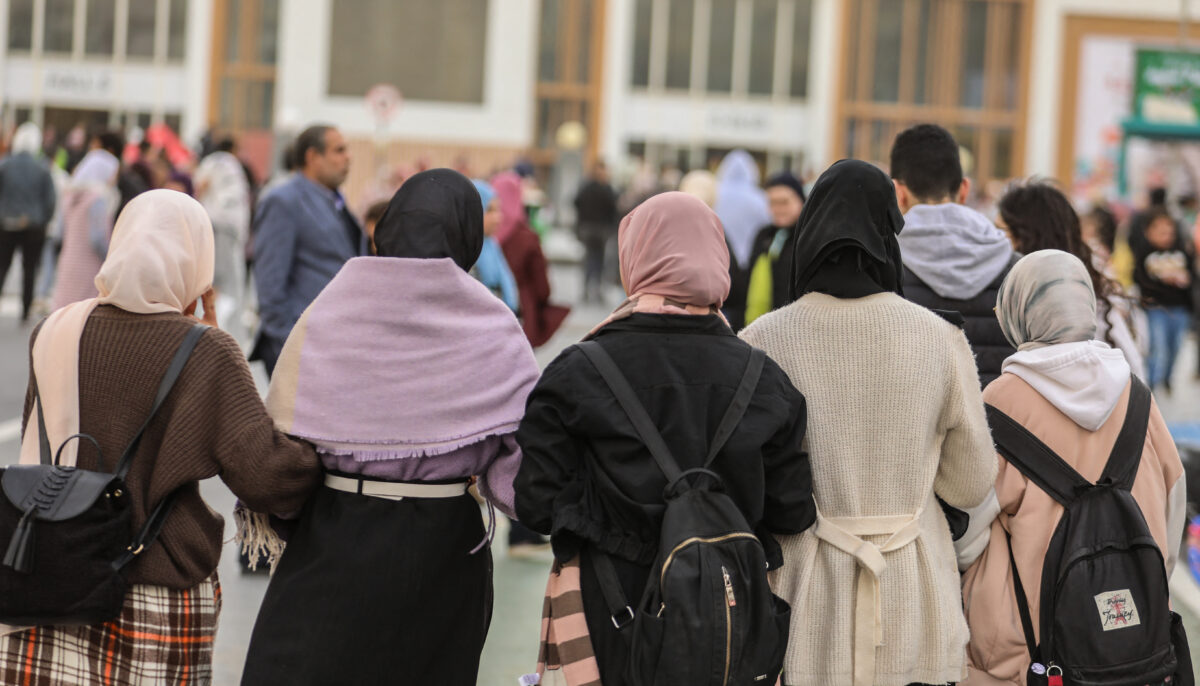“I thought I knew a lot about sexual education and that I was immune to ignorance,” said Sarah Mahmoud. “I didn’t realize how much false and misleading information I had taken in. It really affected my marriage.”
Sarah, a young Egyptian woman, explained to SMEX the consequences of social media’s misleading information about sexual practices.
While the internet offers vast opportunities for learning, it also contains false information that many people fall victim to. This is partly because social media platforms often block content related to sexual and reproductive health rights (SRHR) under the pretext of “shame” and “public immodesty.”
Sex Education in Egypt
Mahmoud said she was misinformed by a social media influencer who claimed to be an expert in sexual health.
“Information about the duration of the act, the time between each sexual encounter, and the size of the penis made me feel dissatisfied in my 10-year relationship with my husband, bringing us to the brink of separation,” she told SMEX.
Mariam, a housewife living in Cairo, also found misleading information on Facebook groups where inexperienced women posed as sex specialists.
According to Mariam, this misinformation gave her sex problems that threatened her health and caused tension in her marriage.
Before getting married, Mariam was not allowed to discuss sexual issues. Her mother assured her she would “understand everything about sex after her marriage.” As a result, the internet became the primary source of information about her sex life.
Social taboos and restrictions influence sex education in Egypt, which is already absent from school curricula and at home.
60% of parents avoid discussing topics related to sex out of fear that their daughters might engage in premarital sex, according to a study by the Population Council.
Teachers also tend to refrain from discussing puberty, sex, reproductive organs, and other related topics with students because they’re scared of backlash from parents.
These findings align with a 2019 survey by Love Matters, an Arabic platform specializing in sexual and reproductive health in Egypt.
The survey reported that 88% of individuals aged 18 to 30 obtained their education on sexual health from social media, pornographic sites, and other online sources. Unfortunately, these often spread misleading information and falsely claim expert status.
In the absence of reliable sex education curricula, and as parents shy away from the topic, people have started using online platforms as their primary source of knowledge on the matter, according to a UNESCO report.
According to a UNESCO report from November 2023, 71% of young people in African countries sought sexual education and information online within one year, making them vulnerable to disinformation.
Disinformation
Laila grew up in a conservative family where topics related to sex were never discussed. In an interview with SMEX, Laila shared that she learned about her menstrual cycle in a “terrifying” way.
She explained that it was a mysterious event that her mother barely shared any details about. Laila became shy and ashamed of her body for many years, and instead of asking about topics related to sexual health, she chose to stay in the dark.
“The doctors’ language seemed complicated and hard to understand,” said Laila. “The medical websites didn’t answer my questions, and their content used terms hard to grasp.”
“I looked on social media for simpler information, but I faced many difficulties communicating with my husband on these topics. I thought I was doing everything I could. I didn’t know how to express my needs because I didn’t know what I wanted,” she added.
SMEX’s research “From Sharing to Silence: Assessing Social Media Suppression of SRHR Content in WANA” details how social media platforms moderate and manage SRHR content in West Asia and North Africa (WANA).
The results revealed that restrictions were imposed on organizations and content creators who posted about SRHR. Their content was removed, their advertisements blocked, and their organic reach was limited.
This content was censored because it allegedly violated the platform’s policies on “sexual” or “adult” content.
Although these policies allow for exceptions for educational, medical, and artistic reasons, the study documented many cases where platforms removed such content, contradicting their own policies.
The research documented how this led to a lack of trusted specialists’ voices and allowed misleading and false information to spread from websites and accounts run by amateurs or bloggers who lack the medical expertise to cover SRHR topics and issues.
Magda Soliman, the Director of the Reproductive Health and Rights Program at the Centre for Egyptian Women Legal Assistance (CEWLA), attributed the spread of disinformation among girls to their “appetite for knowledge.”
It drives them to non-specialized websites, where their ignorance and curiosity about sex are exploited.
Lack of knowledge about sexual and reproductive health, along with the spread of misinformation, said Soliman, can seriously affect women.
Ignorance and misinformation can lead women to make incorrect health decisions and could increase health-related risks. They can also negatively impact marital relationships.
According to Soliman, the best way to avoid misinformation and make sound decisions is to provide access to accurate and reliable information from specialists.
Soliman also emphasized the importance of guiding parents on how to educate their children about sex, encouraging open dialogue and allowing them to ask questions and express their concerns. Sex-related information should also be simplified according to the child’s age.
“Misleading information spreads rapidly through social media and the internet, making it difficult to contain or correct. This can shape society’s perception around certain issues, create conflict, and influence rational decisions and behavior,” Waleed Hagag, an Egyptian information security expert told SMEX.
To avoid misinformation, Hagag advises adopting critical thinking when reading any information, avoiding sharing content driven by emotions or shock, always verifying the sources of information, and avoiding suspicious sources.
Limited Initiatives to Promote Sexual Education
To raise awareness on SRHR, many civil society organizations are starting social media campaigns, organizing educational workshops, and sharing information from specialists.
Tadwein for Gender Studies is one of the organizations aiming to end gender-based violence through promoting sexual education for young people in Egypt.
The organization has launched campaigns such as #مش_عيب (Not a Shame) to combat the stigma around sexual education. They have also shared video clips about sexually transmitted diseases, intimate partner violence, and gender-based violence.
Similarly, the Barah Amen initiative, a feminist organization in Egypt, educates people about sexual and gender rights to support survivors of sexual violence.
Another initiative, “Love Matters” (الحب ثقافة), an Arabic-language platform specializing in sexual and reproductive health, provides information amd people’s personal anecdotes supported by scientific evidence.
Despite the efforts of civil society and activists, sex education remains a major challenge, both locally and internationally, in Egypt and elsewhere.
Removing sex ed from educational curricula and restricting it on social media despite its reliability, leaves millions of women vulnerable to misleading information online, which is often their only source of information.



